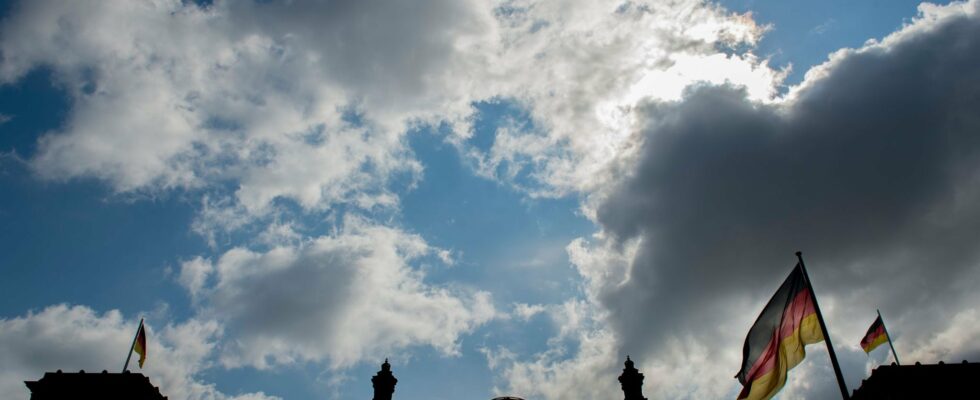It’s a figure that continues to fall: in Germany, inflation continues to fall in September, reaching its lowest level since February 2021. With a consumer price index of 1.6 % over one year, the country saw for the first time in three and a half years this index fall below the very symbolic 2% mark – the objective set by the European Central Bank (ECB) in 2021.
Good news in principle, therefore, made possible by a significant drop (6.9%) in fuel prices and energy prices (3.8%), compared to last year.
Despite these positive indicators, the German economy is sinking into sluggish dynamics. This economic context could result in a second year of recession in 2024: according to the five major economic institutes in the country (Berlin, Munich, Kiel, Halle and Essen), the country should see its economic activity contract further by 0.1% in 2024, after a recession of 0.3% in 2023.
An industry in difficulty
Several factors explain this phenomenon. The state of German industry – once powerful and exporting – which is struggling to recover from the beginnings of the war in Ukraine (and therefore the end of cheap Russian gas) and the rise of Chinese protectionism, which has cut short on its exports. So far, unemployment figures are stable (around 6%), but the German automobile industry could soon see thousands of jobs cut after the probable closure of Volkswagen production sites, the largest industrial employer across the Rhine.
The industry is facing strong competition from foreign countries, starting with China, which has become extremely powerful in the automobile sector, particularly electric. Other sectors are struggling to recover from rising energy prices: chemicals and steel, which are also experiencing competition with China.
Sluggish consumption
This situation could continue. Companies, which would have the power to improve productivity and competitiveness, make little or no investment, leading to a drop in orders from abroad. On the State side, the government is doing little more: the ruling coalition is locked into an increasingly marked financial orthodoxy, refusing any form of investment, too. The share of gross public investment in German GDP was 2.5% between 2018 and 2022, the lowest among major high-income countries except Spain. Result: certain projects remain at a standstill, starting with certain roads and telecoms infrastructures which are becoming increasingly dilapidated.
Household consumption is also unlikely to revive German growth: crushed by the energy shock and the constant increase in housing prices, they are struggling to regain purchasing power that has been largely shaken since the start of the war in Ukraine, despite some wage increases and a slowdown in inflation. As a result, the economy has barely grown since 2019 and everything suggests that this contraction is likely to continue.
